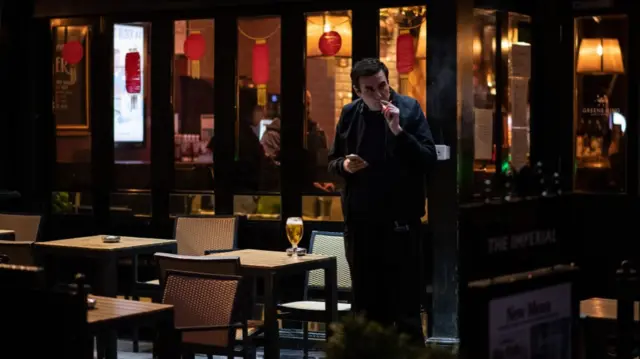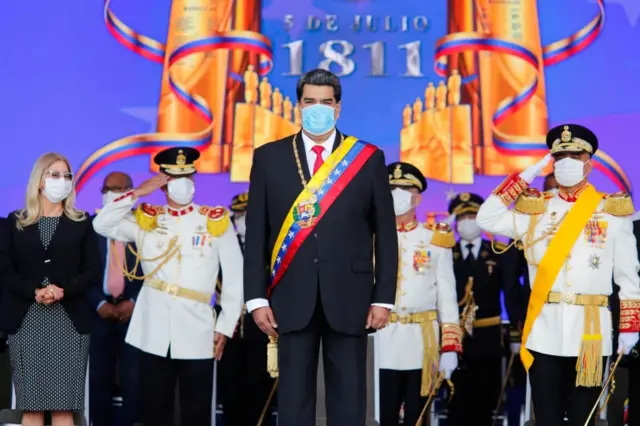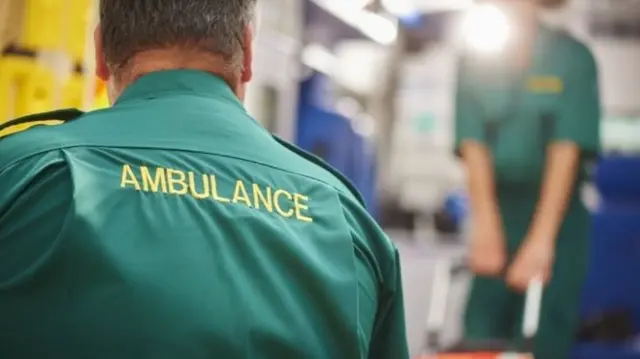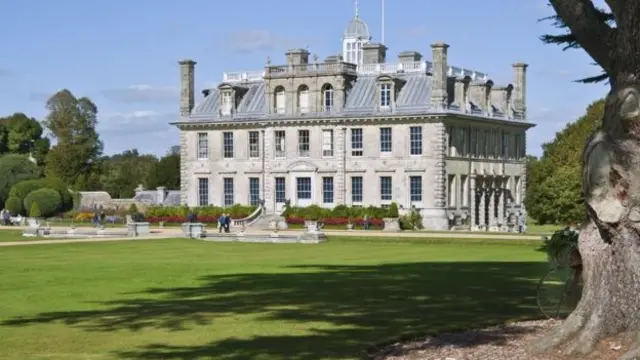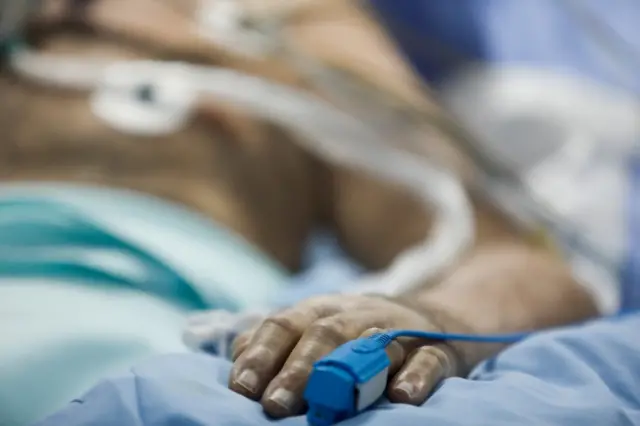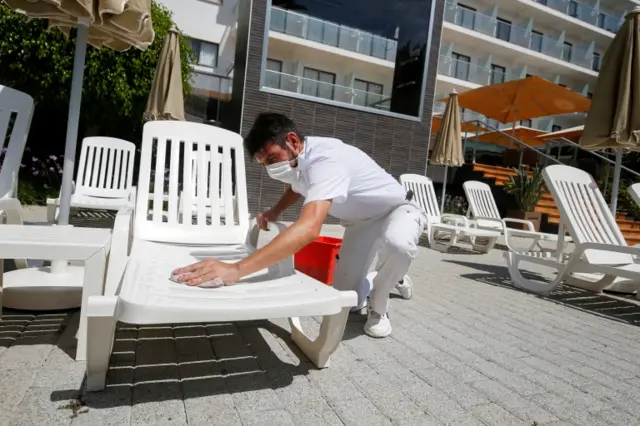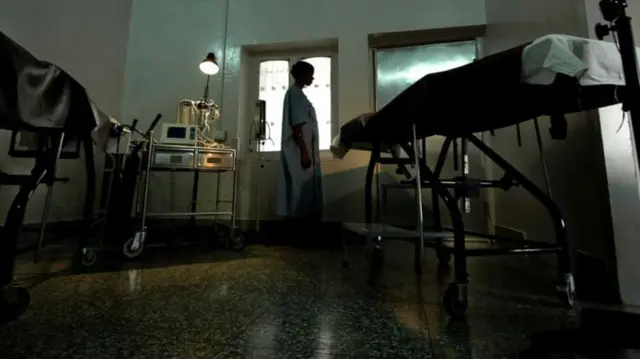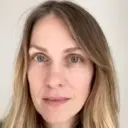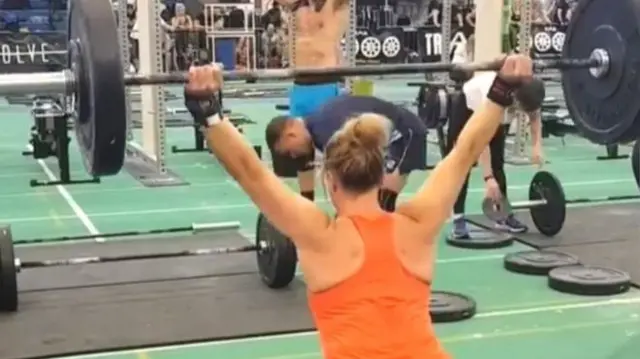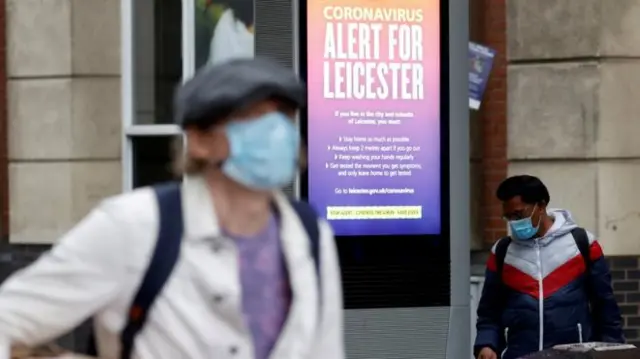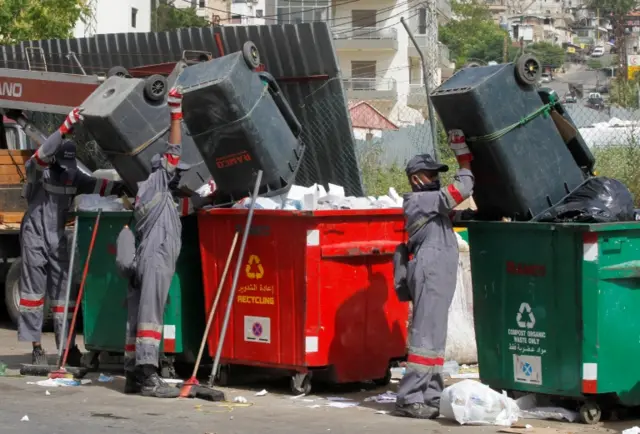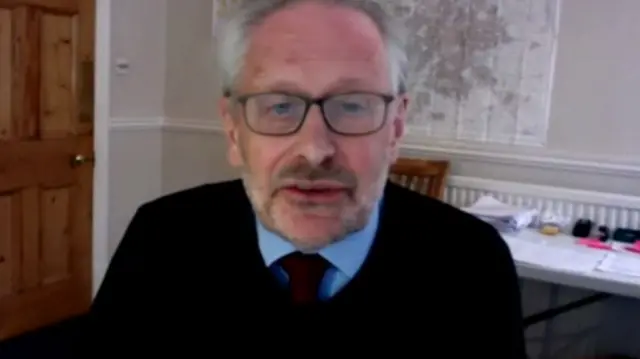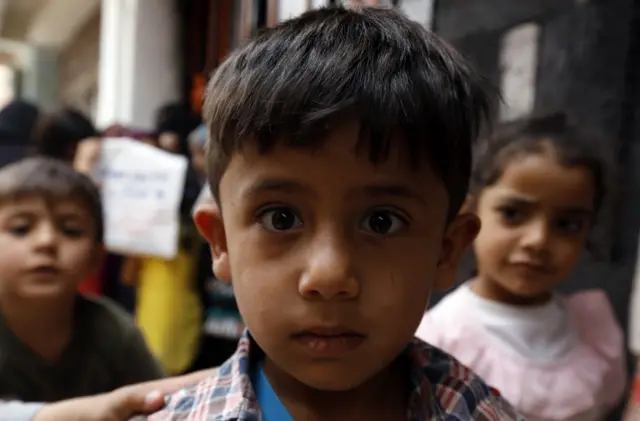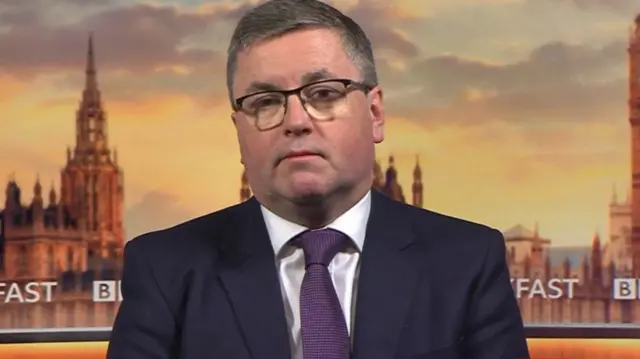Boris Johnson: It's 'important to wear masks in shops'published at 12:01 BST 13 July 2020
Prime Minister Boris Johnson says he thinks face coverings “have a great deal of value in confined spaces” and the government will be looking at “tools of enforcement” in the next few days.
There have been calls for face coverings to be made compulsory in shops in England, and the PM says “the scientific evaluation” of their value in recent months “has been growing”.
Mr Johnson said in shops "it’s very important to wear a face covering", adding that "we should do that".
But he stopped short of announcing any compulsion to do so. He said the government will be looking at its guidance and "saying more in the next few days".
